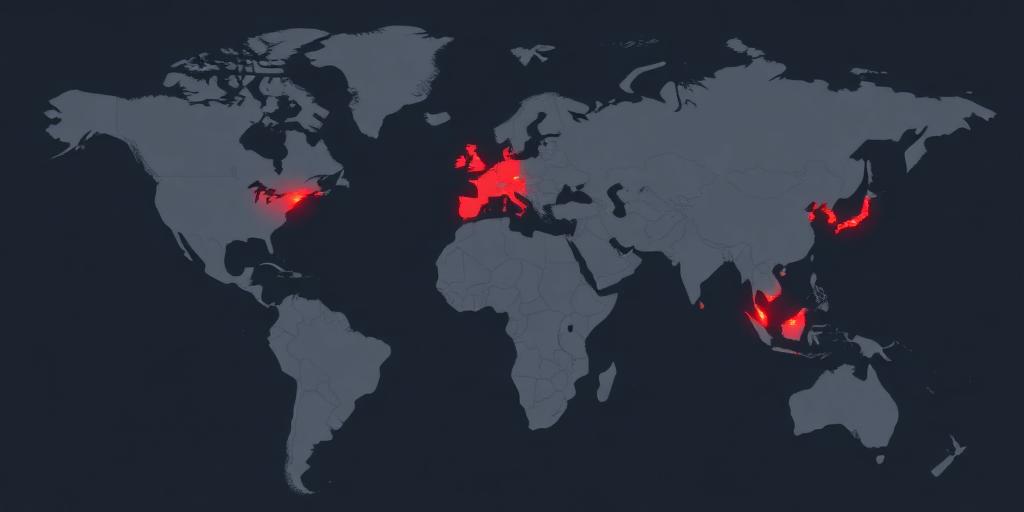Diplomatic Challenges in Emerging Global Hotspots
In an increasingly interconnected world, diplomatic challenges in emerging global hotspots are becoming more complex and critical. These hotspots, characterized by political instability, economic competition, and social unrest, require nuanced and strategic diplomatic approaches to prevent escalation and promote peaceful resolutions. This article will explore the key challenges faced by diplomats in these regions and the strategies they employ to navigate them.
Understanding Emerging Global Hotspots
Emerging global hotspots are regions experiencing rapid change and heightened tensions. These areas often involve a confluence of factors, including:
- Geopolitical Rivalry: Competition between major powers for influence and resources.
- Economic Interests: Disputes over trade routes, natural resources, and economic dominance.
- Political Instability: Weak governance, internal conflicts, and power vacuums.
- Social and Ethnic Tensions: Historical grievances and discrimination leading to unrest.
- Climate Change: Environmental stressors exacerbating existing conflicts and creating new ones.
Key Diplomatic Challenges
Diplomats operating in these hotspots face a myriad of challenges that demand adaptability, cultural sensitivity, and strategic foresight.
Navigating Complex Political Landscapes
One of the primary challenges is understanding and navigating the intricate political dynamics. This involves:
- Identifying Key Actors: Determining who the influential stakeholders are, including government officials, rebel groups, and civil society organizations.
- Assessing Power Dynamics: Understanding the balance of power and the motivations of each actor.
- Building Trust: Establishing relationships with various factions to facilitate dialogue and mediation.
Addressing Humanitarian Crises
Many emerging hotspots are plagued by humanitarian crises, including displacement, food insecurity, and health emergencies. Diplomats must:
- Coordinate Aid Delivery: Working with international organizations and NGOs to ensure the efficient and equitable distribution of aid.
- Advocate for Human Rights: Promoting the protection of civilians and adherence to international humanitarian law.
- Mediate Ceasefires: Facilitating negotiations between warring parties to allow for humanitarian access and relief efforts.
Managing Economic Interests
Economic factors often fuel tensions in emerging hotspots. Diplomats must:
- Promote Sustainable Development: Encouraging economic policies that benefit local populations and reduce inequality.
- Negotiate Trade Agreements: Facilitating fair trade practices that foster economic stability.
- Address Resource Conflicts: Mediating disputes over natural resources to prevent exploitation and environmental degradation.
Countering Extremism and Terrorism
Extremist groups and terrorist organizations often exploit instability in emerging hotspots. Diplomats must:
- Strengthen Security Cooperation: Working with local governments to enhance their capacity to counter terrorism.
- Address Root Causes: Tackling the underlying social, economic, and political factors that contribute to radicalization.
- Promote Interfaith Dialogue: Fostering understanding and cooperation between different religious and cultural groups.
Strategies for Effective Diplomacy
To effectively address these challenges, diplomats employ a range of strategies:
- Preventive Diplomacy: Engaging early to prevent conflicts from escalating.
- Mediation and Negotiation: Facilitating dialogue between conflicting parties to reach peaceful settlements.
- Peacekeeping Operations: Deploying international forces to maintain stability and protect civilians.
- Capacity Building: Supporting local institutions to strengthen governance and promote the rule of law.
- Economic Diplomacy: Using economic tools to promote development and stability.
Case Studies
The South China Sea
The South China Sea is a prime example of an emerging global hotspot, characterized by territorial disputes and competing economic interests. Diplomats from ASEAN countries, China, and the United States are engaged in ongoing negotiations to manage these tensions and prevent military escalation.
The Sahel Region
The Sahel region in Africa faces multiple challenges, including political instability, terrorism, and climate change. Diplomats are working to coordinate international efforts to address these issues and promote sustainable development.
The Future of Diplomacy in Emerging Hotspots
The role of diplomacy in emerging global hotspots will continue to evolve as new challenges arise. Key trends include:
- Increased Use of Technology: Utilizing digital tools for communication, data analysis, and conflict monitoring.
- Greater Emphasis on Multilateralism: Working through international organizations to address complex global issues.
- Focus on Climate Diplomacy: Addressing the impacts of climate change on conflict and instability.
Conclusion
Diplomatic challenges in emerging global hotspots are multifaceted and demand sophisticated strategies. By understanding the underlying dynamics, addressing humanitarian needs, managing economic interests, and countering extremism, diplomats can play a critical role in promoting peace and stability in these regions. Effective diplomacy requires a commitment to dialogue, cooperation, and sustainable solutions to navigate the complexities of our interconnected world.









